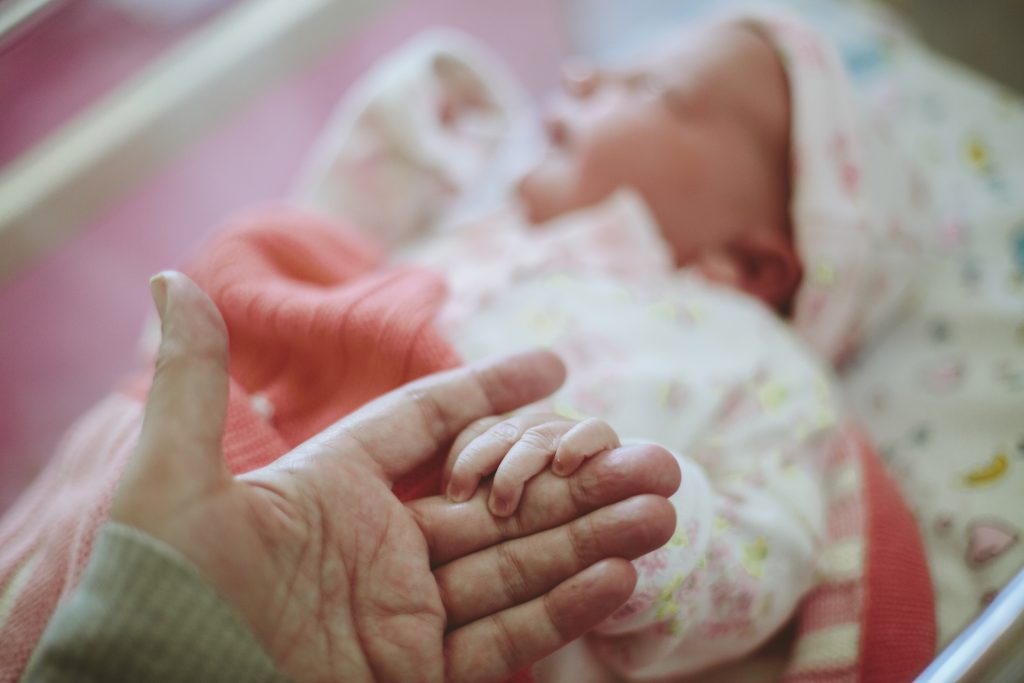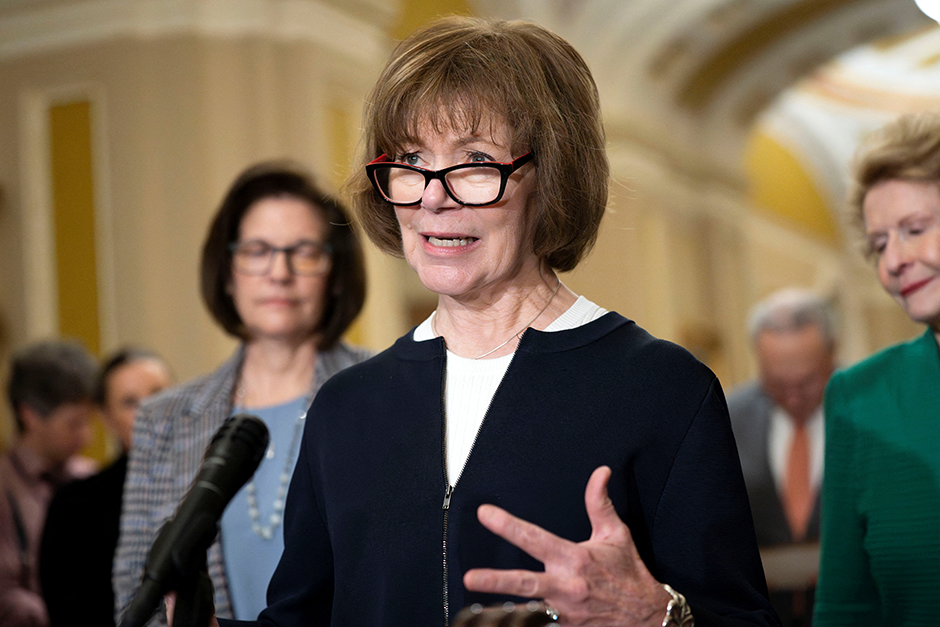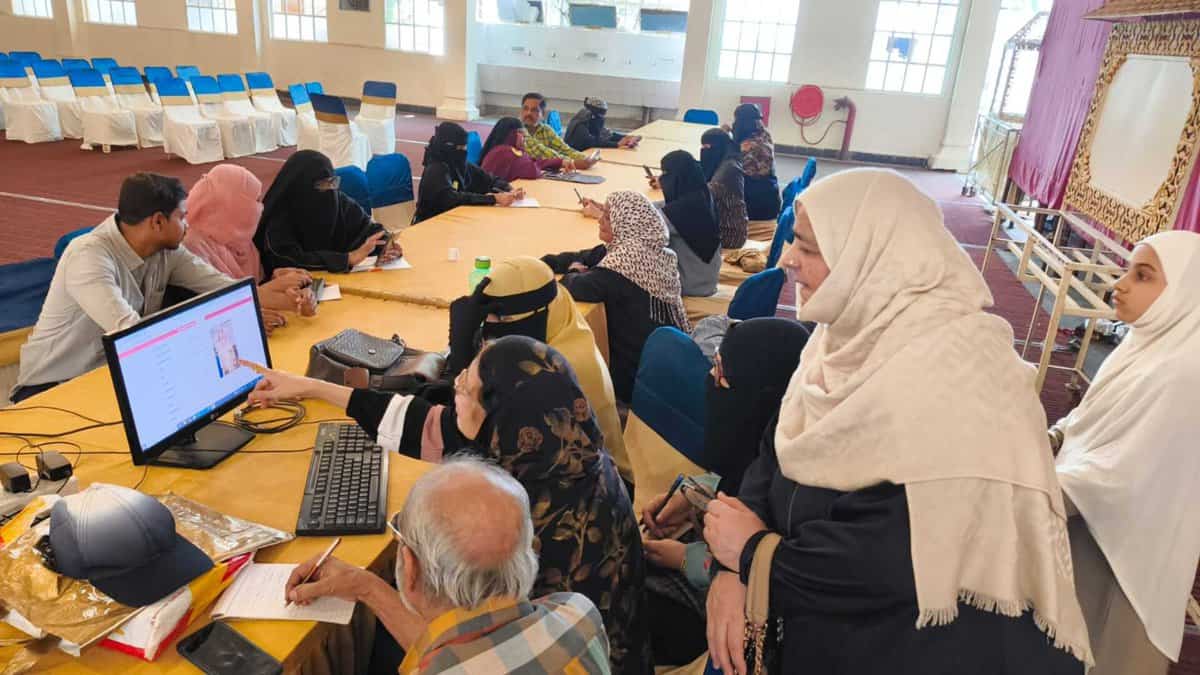
President Donald Trump is reportedly considering a series of programs and incentives intended to raise the nation’s fertility rate. So what would actually convince Americans to have more babies?
READ MORE: So you want to increase your country’s birth rate? Experts say it’s tough
PBS News put out a call to readers this month asking just that. We heard back from nearly 1,000 people who shared their thoughts. Though far from a scientific analysis, taken together the answers still reveal key themes.
Financial strain, child care costs, out-of-reach fertility treatments, rules on reproductive health care and shrinking support services were big concerns or barriers for many of the people we spoke with. Yet despite their myriad concerns, many who spoke to PBS News still wanted children (and more than one).
The Trump administration has floated ideas such as classes designed to educate parents about menstrual cycles, a one-time $5,000 payment after a baby is born and “MAGA accounts” seeded with $1,000 in investments for newborns.
Experts say that incentivizing people to have more kids is an uphill battle at best, and may even miss the mark on how governments can best support their citizens.
Fertility rate policies “should be focused on helping people have the number of children they would like to have and supporting them in having children — and not having children — according to what they prefer,” said Sarah Hayford, director of the Institute for Population Research at the Ohio State University.
WATCH: A Brief But Spectacular take on building a birthright to capital
To explore what’s stopping families from expanding and what might help, PBS News spoke to parents and prospective parents across the country.
The high cost of just existing is a big concern
Aubrey DeCoteau, a 34-year-old new mother, says she would like to give her daughter a sibling.
“In some ways our family just doesn’t necessarily feel complete. It feels like maybe there is room in our hearts for another child,” DeCoteau said.
But even with an annual household income of $170,000 and a relatively lower cost of living in Fargo, North Dakota, she says having a second child feels “logistically” and “financially” impossible.
“It feels like the option isn’t even there if we wanted it,” DeCoteau said.
Her daughter’s severe asthma has cost thousands in hospital trips and missed work, and she says it’s likely her next child would have the same respiratory conditions.
“I don’t know if, for other generations, this felt like such an existential crisis to decide if you’re going to have a second kid,” DeCoteau said.
Child care costs are a conundrum
DeCoteau, whose family and in-laws live too far away to help babysit, says it would be exceedingly difficult to pay another $18,000 a year for day care on top of a mortgage and other bills.
Child care is also a major concern for Megan Schneider, 29, who recently brought her first child home from the NICU after her daughter was born about eight weeks prematurely. Add another (hypothetical) child, and day care expenses would likely outpace her income.
“What is the point of me working if all of my paycheck goes to her care?” Schneider said.

Parents grapple with the high cost of child care when considering if and when to have a child. File photo by Sally Anscombe/via Getty Images
But she can’t stay home from work with her infant past the four months she’s already taking, including paid time off and disability leave.
“We can’t really afford it. We bought our house in November, and we just need me working to help pay for the mortgage,” she said.
Families are grappling with infertility and IVF bills
For Shawn Eiko Brown, 38, the high costs of in vitro fertilization coupled with her $45,000 student loan debt have forced her toward accepting the “disappointing” reality that she may not be able to afford even one child — a far cry from the full household she once dreamed of as a teen.
Now two years in and $25,000 down, she says she’s got just one cycle left of IVF to have the child she’s always wanted.
“This is the last one, and that’s because we can’t afford it. $25,000 was our limit, and that’s with really good insurance,” said Brown, whose husband’s work-provided insurance offers special fertility benefits.
WATCH: What Trump’s IVF executive order means for access to fertility assistance for Americans
A high school teacher who has always been “very maternal,” Brown’s desire to have children is deeply meaningful to her. She wants at least one daughter so that she can continue her family’s matrilineal tradition of passing down the middle name Eiko and keep her late mother’s legacy alive.
“That’s just very important to me. I just want her to keep going in a way,” Brown said.
Getting pregnant feels like a bigger health risk
Samantha Sarley, 25, fears increased abortion restrictions mean she won’t be able to terminate her pregnancy in the event of complications or if her fetus is not viable. Sarley has polycystic ovary syndrome, a condition that studies have linked to higher risk for miscarriage and pregnancy complications.
Since Roe v. Wade was overturned in 2022, she says she can no longer trust that abortion laws wouldn’t change during a nine-month pregnancy and directly affect her health outcomes.
READ MORE: Brain-dead woman must carry fetus to birth because of Georgia’s abortion ban, hospital tells family
“I just have no confidence that I can be safe while pregnant for the next foreseeable future,” Sarley said.
While she and her husband initially saw themselves on the path toward parenthood by age 29, she says they’ve now indefinitely decided to pause trying for a child.
People are worried about the future
DD Crawley, 32, is concerned that as a Black woman, her pain and discomfort won’t be taken seriously by medical professionals. She’s also worried about bringing a biracial child into a society that she says is increasingly less safe for people of color.
“As a Black woman, I have to think about: What is the world I am bringing kids into?” she said.
Binta Wold, 31, who identifies as nonbinary, fears that if they had a nonbinary or transgender child, they would be targeted by rising anti-transgender rhetoric, legislation and violence. They say “it’s scary” to think about their child not having adequate access to gender-affirming care, having their identities invalidated or being physically harmed.
“I would want my kids to grow up to be adults,” they said.
WATCH: Study finds LGBTQ+ youth mental health suffering in states with anti-trans laws
Sydney Mecheau, 23, said she worries about a host of issues, including the cost of living in her home state of California and pre- and post-natal medical care, but also the future of the planet.
“Overhanging all of this is the climate crisis, to be frank. I mean, with water becoming more scarce and not considered a human right, will I be able to provide a good life for my child 10, 20 years down the line? It’s existential, and it’s very scary,” Mecheau said.
Yet Mecheau’s nieces and nephews inspire her to have her own family.
“They’re all such wonderful children, and I love them to death. I see their parents are so fulfilled from raising them,” Mecheau said. “To be able to provide a good life for a baby, a child — I think it’s part of the human condition. Not everybody has to do it, but for me, I think it’s something I’ve wanted for a really long time.”
They question the future of education
Wold is afraid that support for students with special needs will be stripped as federal education funding is slashed. The possibility of those resources shrinking is high on the list of factors holding them back from starting a family of their own — Wold is autistic and has attention-deficit/hyperactivity disorder, conditions that studies have found are highly likely to be passed down from parent to child.

Other parents worry about a future child’s educational opportunities, including for children with special needs. “If they have a learning disability of any kind, the resources just might not be there,” DD Crawley said. File photo via Getty Images/Maskot
Crawley’s hesitance about having kids is also driven by her lack of confidence in the direction of the U.S. education system.
“Do I want to risk putting a kid in an education system that is being reshaped to tell an alternative history? And if they have a learning disability of any kind, the resources just might not be there,” Crawley said.
Parents said potential Trump administration incentives are a ‘drop in the bucket’
Parents who spoke with PBS News said that a single payment of $5,000 wouldn’t come close to the cost of raising a child and would not incentivize them to have larger families. The federal government estimated 10 years ago that the total cost from birth through age 17 was around $230,000 (though that number varies widely depending on geography, family income level and number of children, among other factors).
“It’s $5,000. Maybe that’ll buy you diapers for the first year. It’s nice to have, certainly, but it’s not enough to push me over that edge of wanting to have a child,” Mecheau said.
DeCoteau echoed the sentiment, saying $5,000 hardly feels like a “drop in the bucket.”
“I spent more than that on medical bills in my daughter’s first year of life,” she said. “$5,000 is less than four months of day care for her, and that’s not even two months of our mortgage.”
“The idea of incentivizing people by giving them $5,000, that’s potentially encouraging people to have kids for the wrong reasons,” said Megan Rodriguez, a 34-year-old mother of one. “You know, like if someone’s going to have kids for $5,000, it’s not a great reason to have a kid.”
What might actually convince them to have more children?
Many respondents shared a variety of policies that would make them more confident about having children.
“The biggest way would be universal health care, guaranteed maternal and paternal leave, and subsidized child care,” Brown said.
DeCoteau suggested the same ideas, with the addition of stable, cost-effective housing.
READ MORE: Mortgage rates have eased. Here’s why it could still be tough for many to afford a home
Mecheau said she would need substantial support to have a child, including a favorable housing situation, substantive parental leave, pre- and post-natal care, and guaranteed health care for her baby until adulthood.
“Of course, there will never be a perfect world, but I think we could definitely get closer,” Mecheau said, emphasizing her worries about climate change as an “existential” problem for humanity at large. “I don’t want to put a child into a reality where they will suffer,” she said.
Crawley wants to see women have greater autonomy in their reproductive health.
“We need to have the right of choice,” she said. “We need to be able to make choices that are in the best interest of our health and families because, one, not all of us are born healthy and even the healthiest of us can have unforeseen complications.”
Wold similarly advocated for policies that protect pregnant people’s choice to prioritize their own health in case of a medical emergency. They also want to see greater funding for special education in public schools as well as “policy that protects access to medical care for trans youth and that allows trans youth to be respected and not have their identities validated.”
But some question the entire idea of a government encouraging its citizens to procreate.
“I personally don’t necessarily believe that the goal should be to incentivize people to have more children,” Rodriguez said. “If someone doesn’t want to have a child or have more children, then they just don’t want more children. I don’t think there should be government incentives.”
Schneider, mother of one, agreed, saying the choice to have children is a personal decision.
She said she could imagine more robust government benefits would make the decision to have two kids easier.
“If there were, say, like universal health care, if there was like a better child tax credit or something, that would persuade me to have the amount of children that I’ve always wanted to have,” she said. “But there’s not really anything that would be persuading me to have more than that.”
The problem is bridging the gap between what people want and what they can do, DeCoteau said.
“The idea of having a second kid right now, the idea feels desirable. The realities feel impossible,” she said.
Support PBS News Hour
Your tax-deductible donation ensures our vital reporting continues to thrive.

















































